12 Potential Replacements for Peter Laviolette After Rangers Fired Head Coach
12 Potential Replacements for Peter Laviolette After Rangers Fired Head Coach
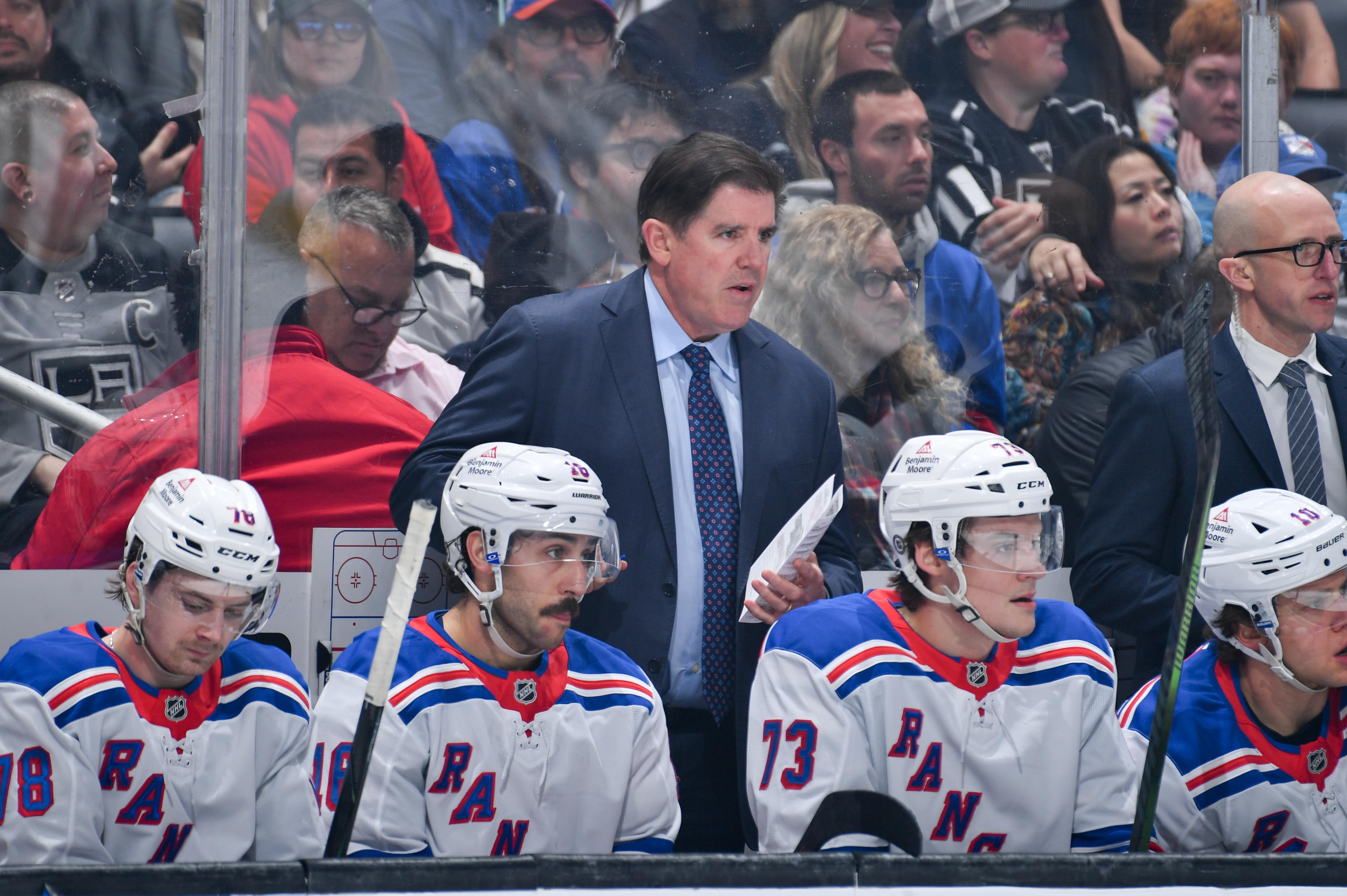
For the fourth time in six years, the New York Rangers find themselves at the beginning of a search for a new head coach after relieving Peter Laviolette of his duties on Saturday.
It's a sign of greater organizational instability and alienation from anything resembling an identity, but let's leave that for another day.
To that point, though, the Rangers need to establish some roots. Laviolette is now the second-straight head coach to make the Conference Final in his first season and then get fired less than 12 months later. This pattern, in which a head coach has little margin for error, doesn't make for great optics. The next hire has to stick. Not only to preserve the team's reputation but also to finally embark on a multi-year build in the coach's vision. The days of handing a new boss a set roster and demanding he make it work must be over.
Whoever is next has a lot of work to do. Team culture needs to be rebuilt from the ground up. An actual tactical identity has to be identified, with personnel identification who can then play that system. Some players need intervention while in a crisis of confidence, while others need tough love.
Who is available to the Rangers to replace Laviolette as the 38th head coach in franchise history? Here are 12 candidates who could be in the mix.
Mike Sullivan
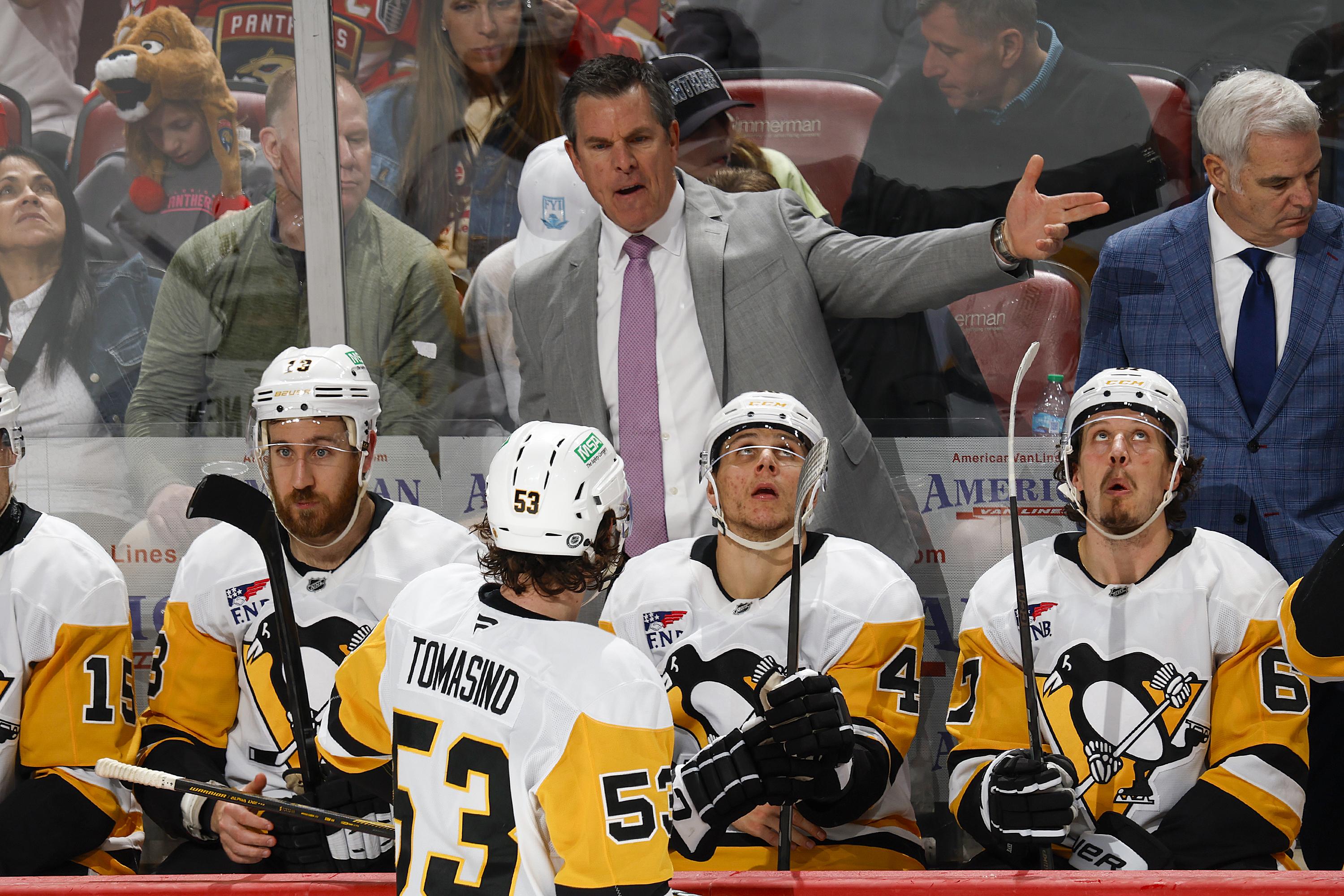
This is the Rangers' dream hire for many reasons.
GM Chris Drury knows him well, having been coached by him both for Team USA at the Olympics as well as with the Rangers.
There are no indications that Sullivan is on the outs in Pittsburgh and he proactively explained to local media that he intends to continue in his role. Yet nobody seems prepared to categorically rule it out. The Rangers could be an alluring spot for Sullivan, as he'd join a team in closer range of competing, would presumably have a big say informing personnel decisions, and likely would see a sizable pay increase.
Sullivan is has a precise idea of what type of team he wants and what types of players will fit that mold. The Rangers need a roster overhaul in any situation but he specifically would require a much faster forward group in order to effectively deploy his go-to 2-1-2 forecheck.
On the flip side, arguably no coach in the NHL does less with more on the blue line. Sullivan won two Cups in Pittsburgh with Kris Letang and a ragtag group of defenseman. The Rangers may need similar magic given their contractual commitments to the defensemen already on the roster.
It's a very unlikely outcome, but if there's even a sliver of possibility from Sullivan's camp, then the Rangers will do due diligence.
Jay Woodcroft
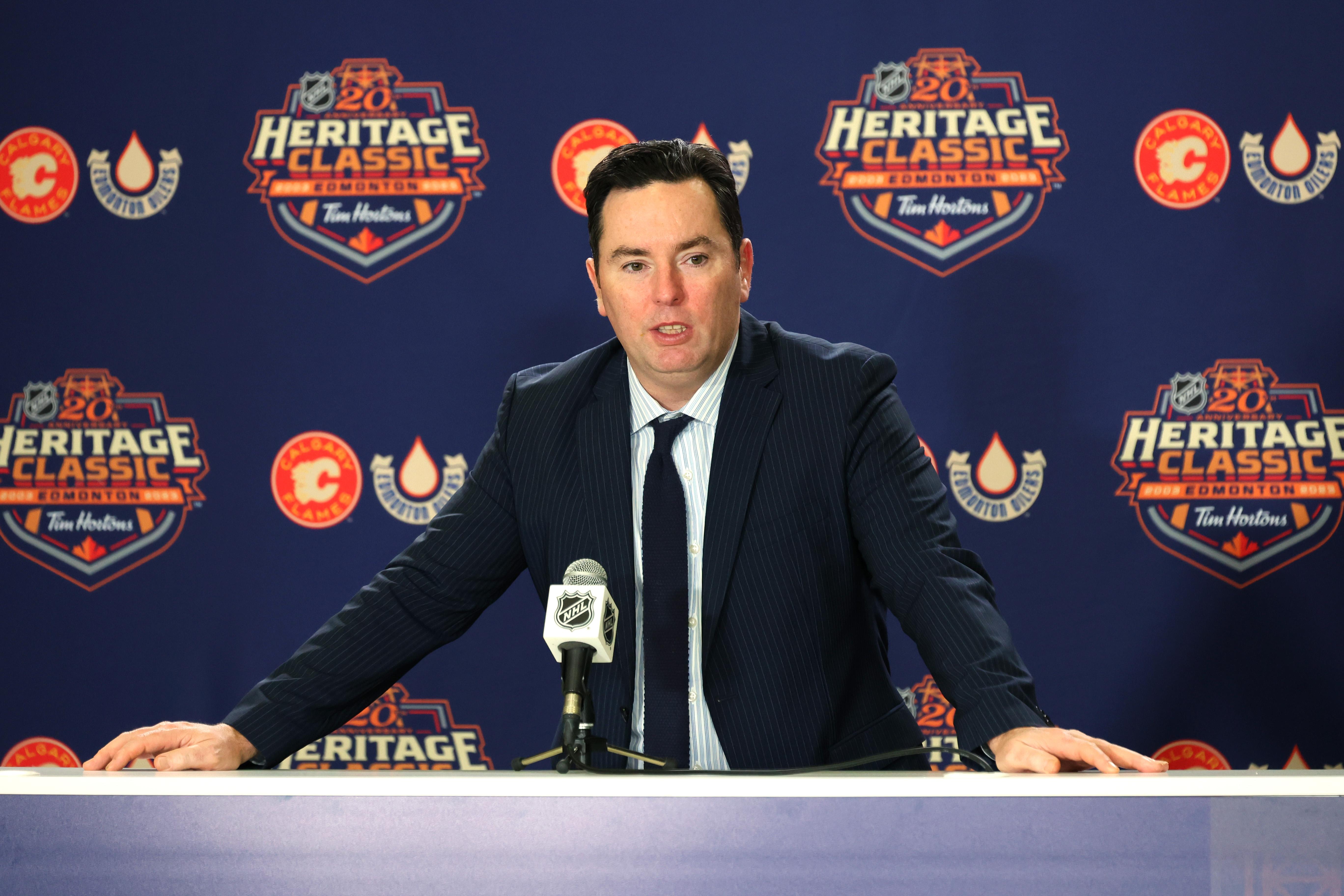
Woodcroft has paid his dues and worked his way up the ladder, starting as a video coach in Detroit. Since then, he spent a decade as an assistant in the NHL and then had success as a head coach in the AHL for three years.
His year-and-a-half behind the bench in Edmonton is hard to gauge. On one hand, Connor McDavid and Leon Draisaitl will make almost any coach look good. On the other hand, the atrocious goaltending that led to his getting the axe is hardly on him.
Woodcroft fixed some defensive issues in Edmonton, and he deployed more conservative forechecking systems, which could be what the league's worst rush-defending team may need. This also only worked because players like McDavid and Draisaitl could make plays across all three zones in transition and the Rangers don't have the horses for that style of play.
Todd Nelson

Todd Nelson has won five different minor league championships as a head coach in the last two decades. That includes back-to-back titles for the Washington Capitals' AHL affiliate, the Hershey Bears, over the past two seasons. He also aided the Dallas Stars to the Stanley Cup Final in 2020 as an assistant who heavily guided team tactics.
Equally impressive has been his record for player development. The Capitals are indebted to Nelson for his role in catalyzing this quick turnaround when just two seasons ago the team seemed dead in the water. Aleksei Protas and Connor McMichael, two key contributors in DC, spent a lot of time marinating under Nelson's careful watch, while Ethan Frank has been a surprise contributor as a 27-year-old rookie.
Nelson is unapologetically aggressive in his ideas, insisting on a 2-1-2 forecheck in most situations with heavy pressure to force turnovers. Without commitment from the players, it creates significant risk for odd-man rushes against them. The Rangers are atrocious at stopping rush chances as is, and are not currently built for this style of play. Undoubtedly, they need to find a different identity that sees them spending more time in the offensive zone. Nelson is highly respected in the locker room and he has a proven track record as a well-rounded coach.
If the Rangers want someone with bold ideas and a reputation for collaborating with players, Nelson should be on the radar. He's overdue for a head coaching gig.
Jay Leach
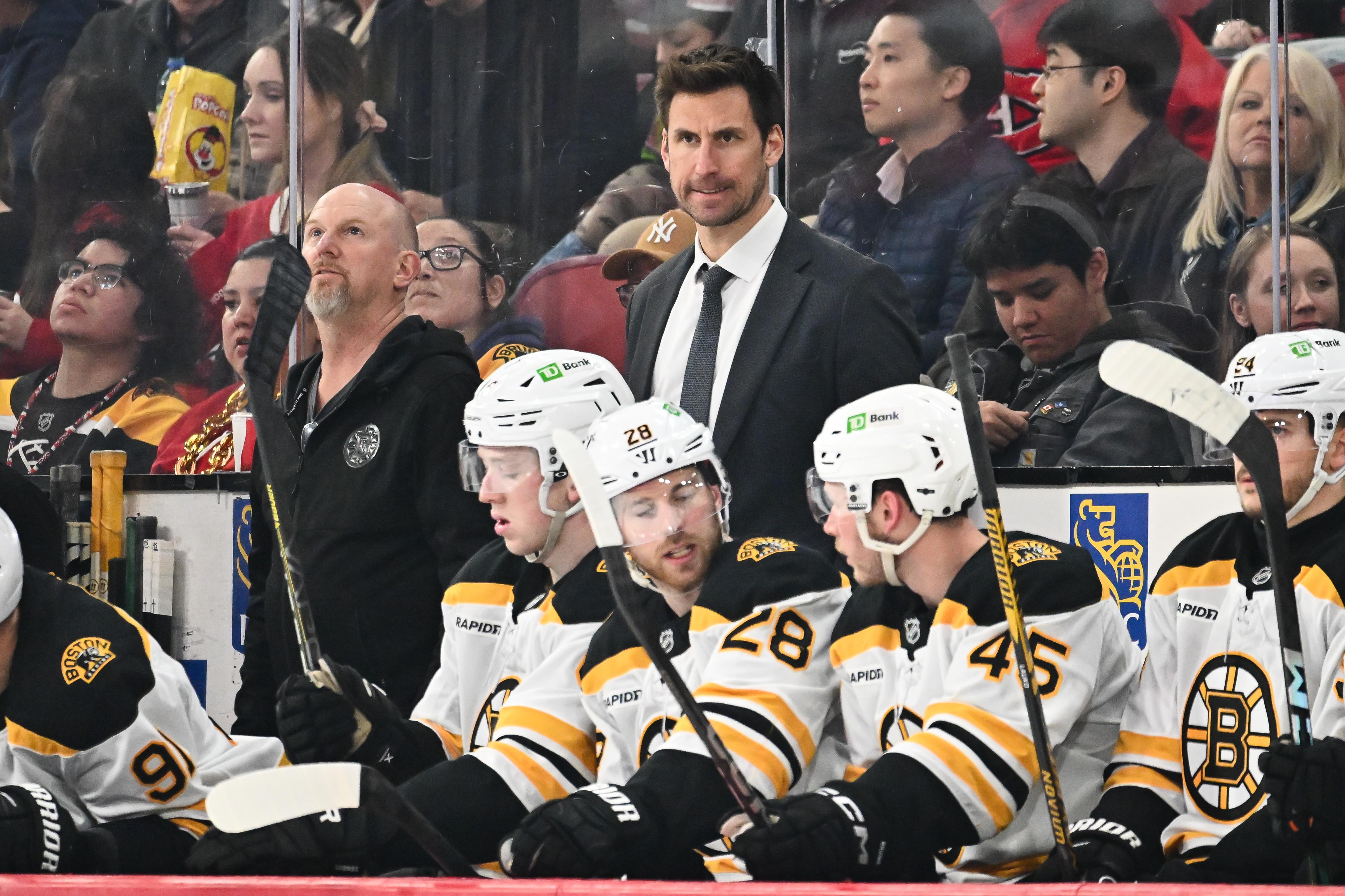
If the Boston Bruins do not retain interim head coach Joe Sacco, assistant Jay Leach may be a candidate for promotion. That may be the preferred outcome for the former defenseman, who previously led the team's AHL bench for four seasons.
If not, then Leach a good bet to end up on a number of team's shortlists.
Leach was initially an understudy of Mike Sullivan's in the Penguins' organization before moving on to the AHL Bruins, then spending three seasons as an assistant in Seattle before returning to the B's organization this year.
The Rangers must completely rethink how their defensemen play. They need someone who not only has tactical acumen but can also translate ideology into player performance. A source familiar with Leach called player communication his leading strength. He's detail-oriented and works well with players, pressing them to be their best while remaining upbeat.
The Rangers just had an all-time season for killing morale. This situation might call for someone who can command the locker room while leading with a carrot rather than a stick.
Sylvain Lefebvre
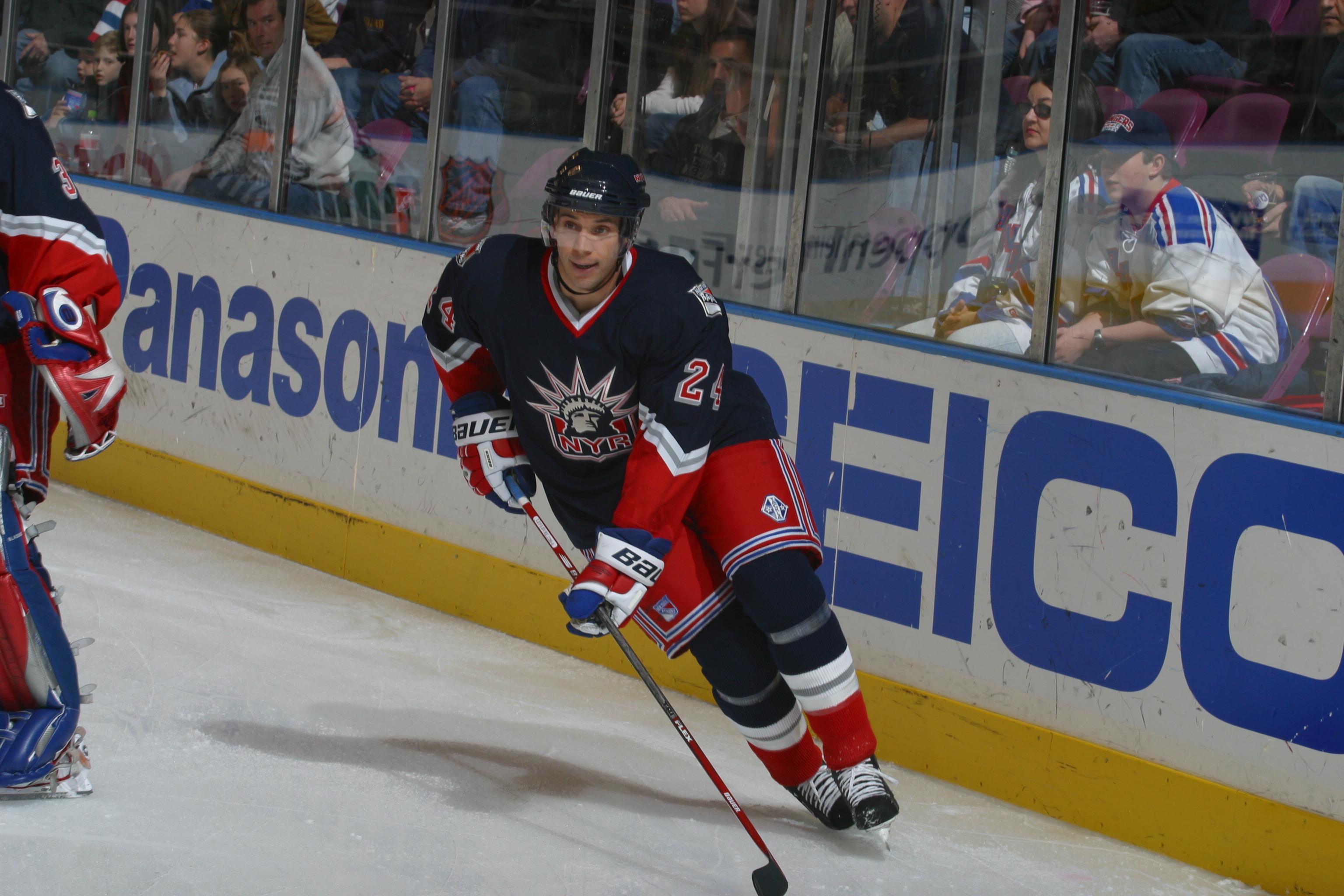
The Florida Panthers are the type of team that the Rangers wish to emulate, particularly as they play off the puck.
Panthers assistant Sylvain Lefebvre comes into view. Responsible for the team's defensive and penalty kill, Lefebvre has helped the Panthers become one of the best disciplined forechecking teams in the NHL. A big part of that is how he's been able to thread the needle of having his defensemen play aggressively, even despite their having incomplete profiles.
One sees how talented players like Gustav Forsling and Brandon Montour became better at reading the game, or how Nikko Mikkola learned to become a complete player despite lacking foot speed. The Rangers' defensive corps is comprised of players who have the talent to play better if only they could improve their structure and decision-making.
Lefebvre also has head coaching experience in the AHL.
Hiring an assistant from a great team is not a foolproof way to become great yourselves; just take a look at the Bill Belichick coaching tree. The Panthers are only able to use their defensemen so aggressively because the front lines are populated with so many strong defensive forwards; the Rangers can only dream of having Sasha Barkov and Matthew Tkachuk, let alone the others.
Ryan McGill
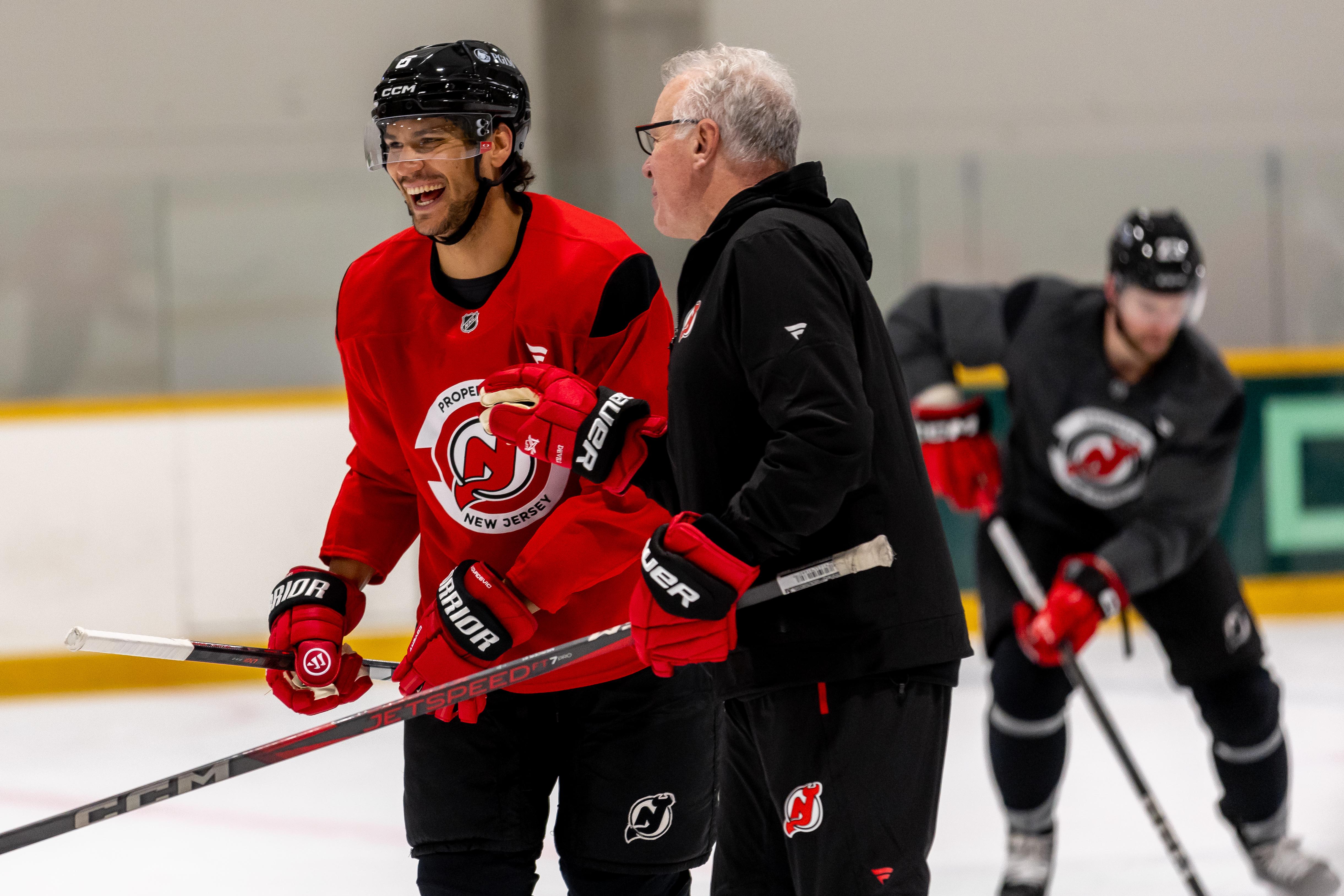
Ryan McGill has been everywhere.
He got his start as an assistant in the WHL in 1996 and has been employed just about every season since, traveling North America to take on all sorts of projects. He's been a head coach in the WHL, OHL, and AHL, including the Hartford Wolf Pack for three seasons in the mid-aughts. He's also been an NHL assistant for the past eight seasons. He's coached young players. He's coached old players. He's had the objective of player development and he's also been in win-now environments.
A defensive specialist, McGill joined the inaugural Vegas Golden Knights and several defensemen have him to thank for career beginnings or revitalizations. He's been in New Jersey for the last three seasons with largely positive results. The Devils were one of the best defensive teams in the NHL this season before injuries depleted the group in the second half of the season.
McGill, 56, is yet to be an NHL head coach, but his resumé is lengthy and he knows defensive structure, which the Rangers sure could use.
Rick Tocchet
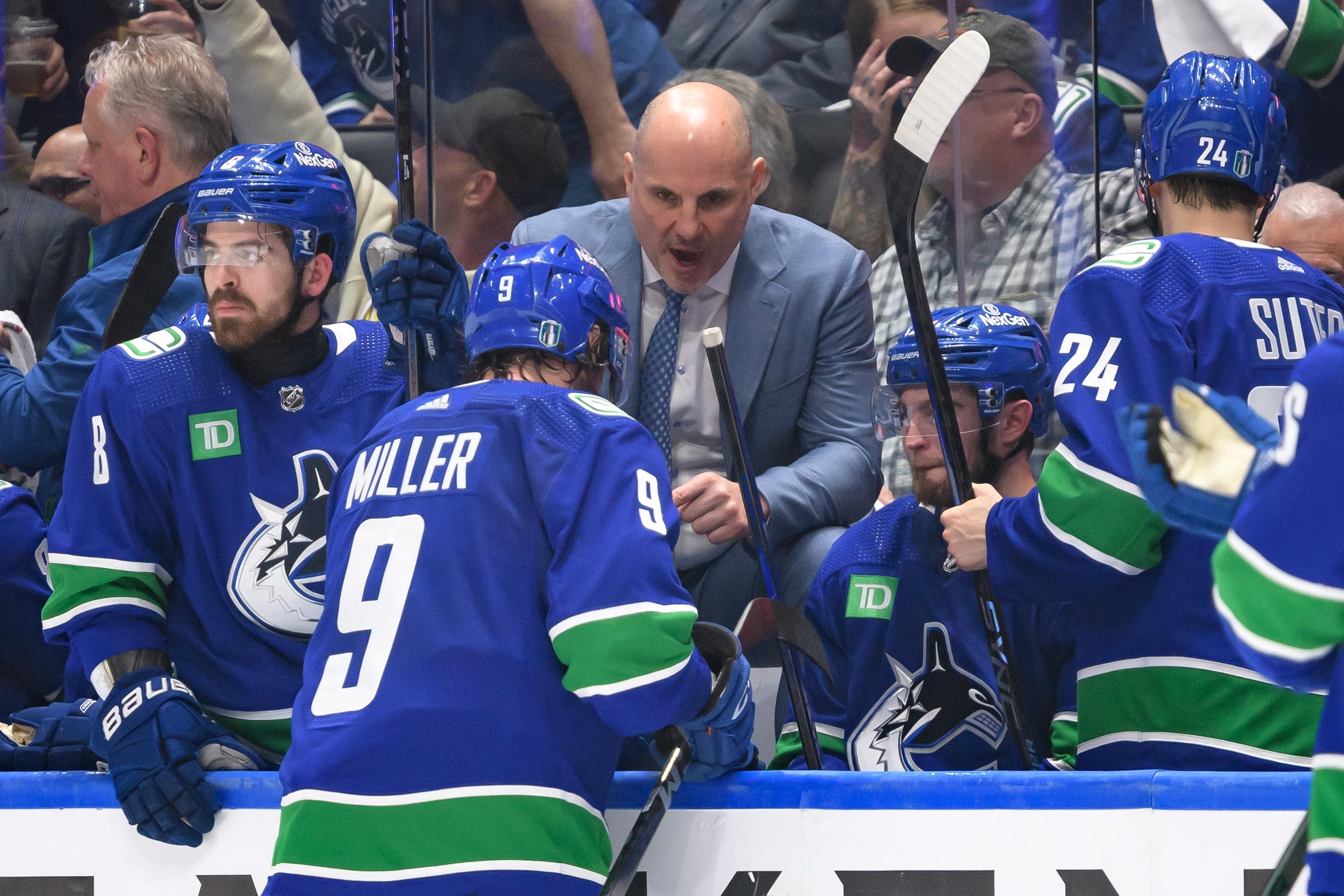
Tocchet has an option to extend his contract through the 2025-26 season and he's been non-committal. The uncertainty has frustrated the Canucks but they should have their answer one way or another very soon.
If he does opt to leave, the Rangers are a reasonable destination about which to speculate. Tocchet preaches a chip-and-chase game, which has historically been the style that GM Chris Drury has at least hoped his team would embrace. His systems are fairly simple and his basic zone defense schemes may be a better fit for this roster, but he is also a highly demanding coach who doesn't have much patience for lethargic efforts or cheating responsibility.
The Canucks were arguably an even bigger mess than the Rangers this season. That's not necessarily Tocchet's burden to bear, but it's not exactly reassuring for a team that needs to radically shift team culture.
In particular, Tocchet's relationship with J.T. Miller would come into question. The two are very passionate and resolute, and while both appear to have mutual respect, it's no secret that they butted heads at times. Miller's departure from Vancouver may still be too fresh for this partnership to work.
Rand Pecknold
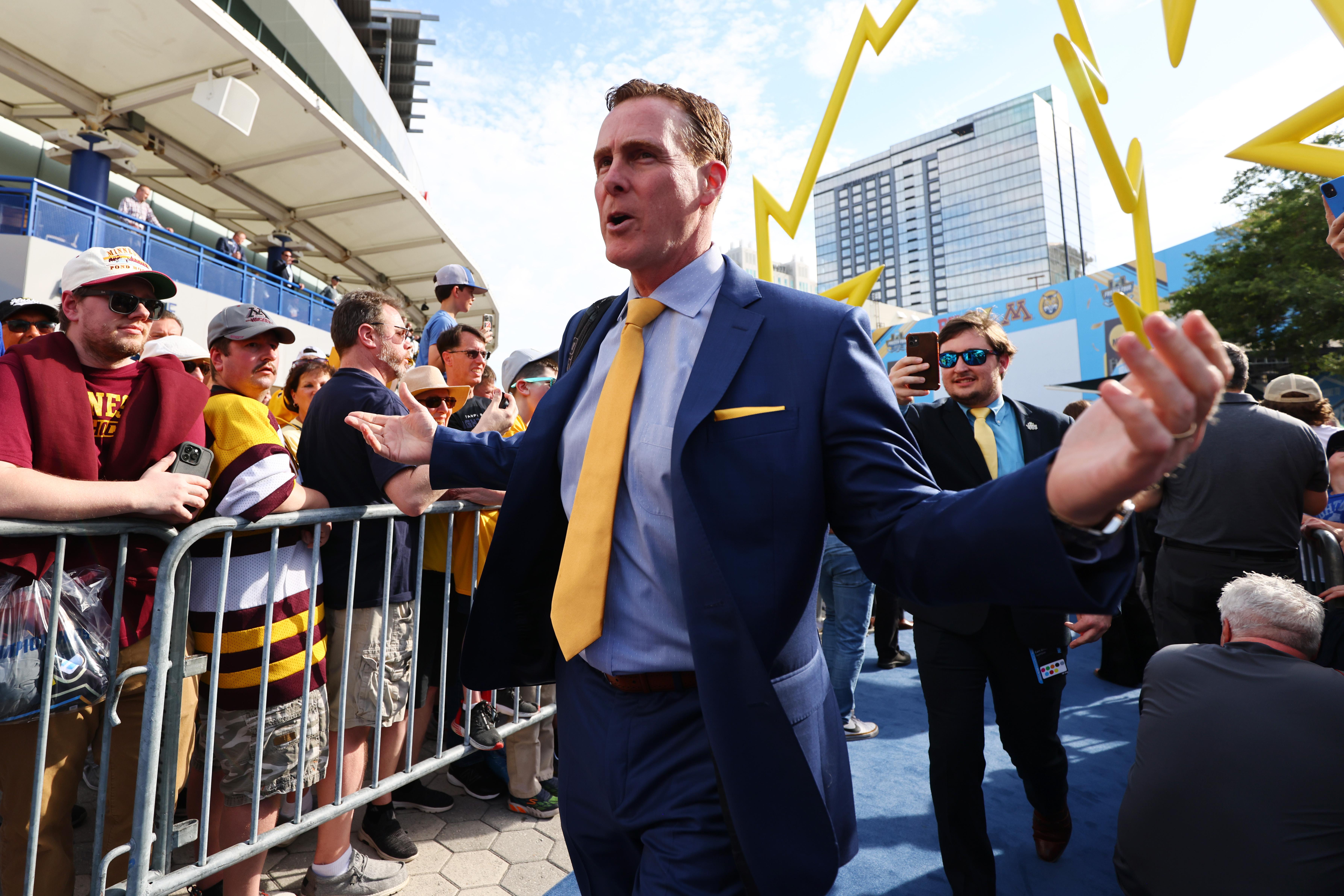
Quinnipiac is a small school in Connecticut. The school doesn't exactly sell itself to top recruits in the way that the top programs like Boston College and Michigan do. In that environment, building a functional program that competes in most seasons requires a knack for identifying talent beyond the low-hanging fruit. Churning out an NCAA champion demands a special ability to find exploits in teams with more talent.
That would be Rand Pecknold. A fixture at Quinnipiac since 2002, Pecknold guided the Bobcats to a national championship in 2023. He's a modern NHL coach who knows how to communicate with the current generation of hockey players and is detail-oriented.
Drury is from Connecticut and has been part of Team USA staffs that have employed Pecknold for tournaments. The Rangers are in a dangerously fragile position and someone with zero professional coaching experience is not the most assuring choice for this moment. Meanwhile, Pecknold seems perfectly content at Quinnipiac. It's an unlikely match, but there are links here that make his addition to this list worthwhile.
David Carle
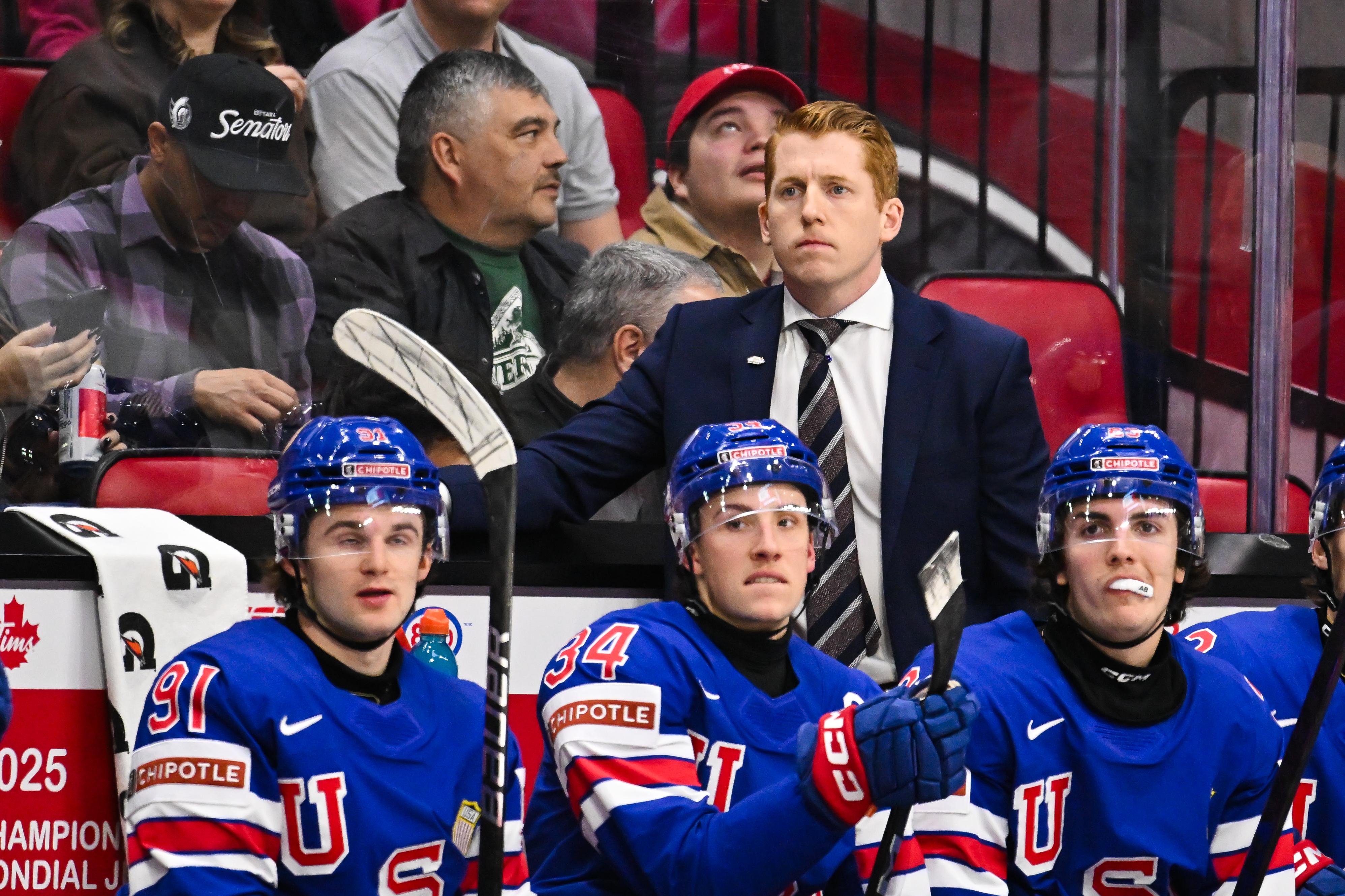
If such a thing as a hockey coaching prodigy can exist, Carle is the closest anyone has come in a long time. A former top prospect who seemed destined for, at minimum, pro hockey, Carle's career was cut short before it could even begin when doctors discovered a heart condition at the 2008 NHL Draft Combine.
He's since immersed himself in the coaching world. He learned under Jim Montgomery as an assistant at Denver and, in 2018, his alma mater hired him to lead the program at the ripe age of 28.
Now 35, Carle has already led Denver to a national title — they lost their repeat bid in the final this year — and piloted Team USA to back-to-back World Junior Championship gold medals.
The NHL is in his future and that moment will be on his terms; whenever he decides he's ready to make the jump, teams will soon follow with offers. Aside from his own lifestyle needs, Carle is only going to join a team if he feels it's the right fit; a place where he will be able to build something over a wide window. Carle is a special coach, but the Rangers could be a chaotic environment for a young first-timer for many reasons. It's also not clear that the organization has the patience for a slow-paced, multi-year building effort.
D.J. Smith
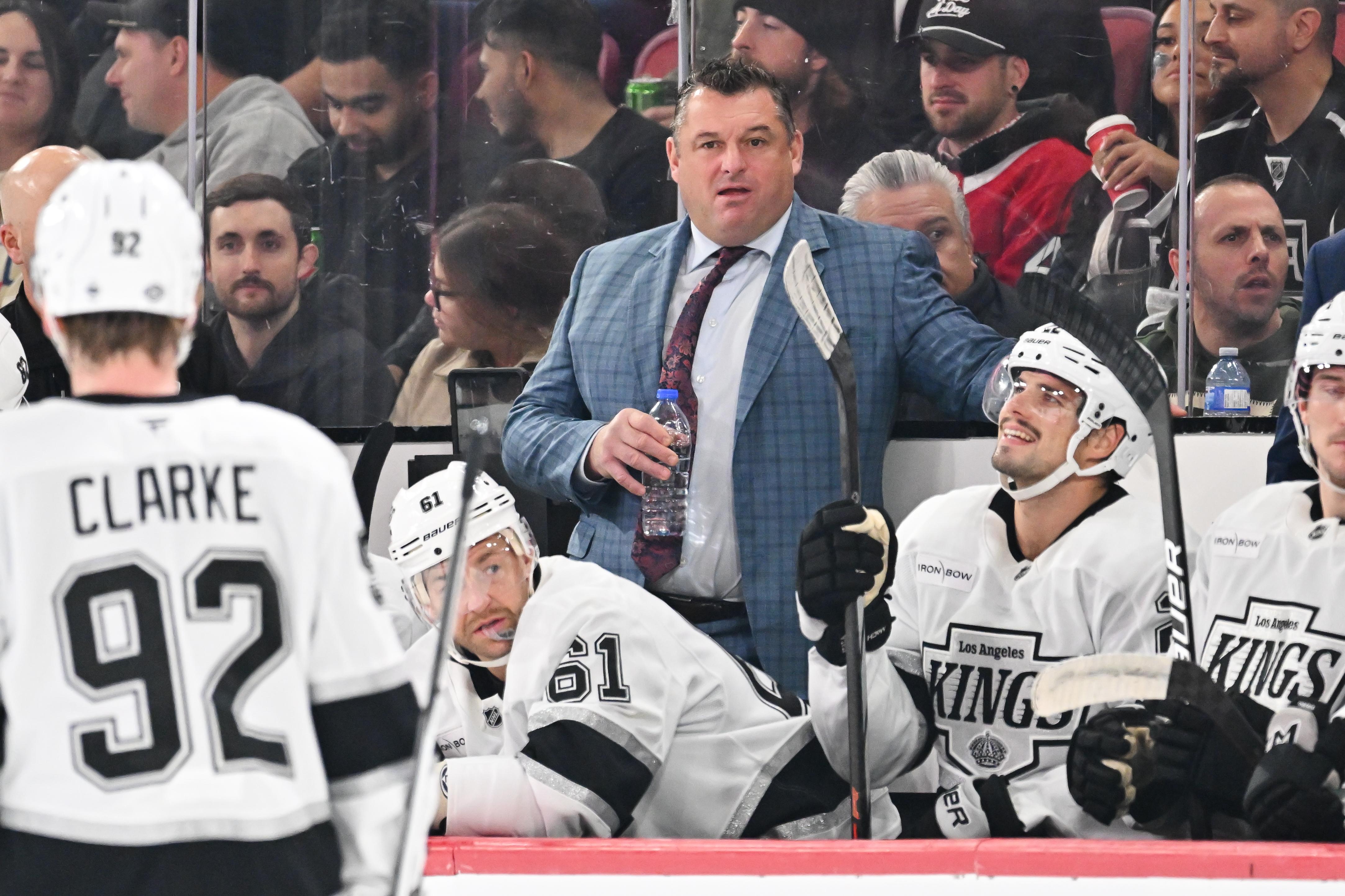
Smith is one of the engineers behind the revamped Los Angeles Kings' defensive structure. The Rangers got their taste of that this season, scoring only two goals total in two games against LA and generally having trouble gaining possession in the offensive zone.
Smith is respected around the league as a thinker of defense. He was previously the defensive assistant in Toronto for four seasons, using data to make the team better at preventing scoring chances.
His first attempt as an NHL head coach was a four-and-a-half year disaster in Ottawa, but let's be fair to him. The team was poorly run from the top and he didn't have a chance. Sometimes head coaches needs to learn from their errors in the first job in order to excel next time around. In an organization willing to spend, and with far better goaltending, Smith might prove head coaching material.
Jeff Halpern
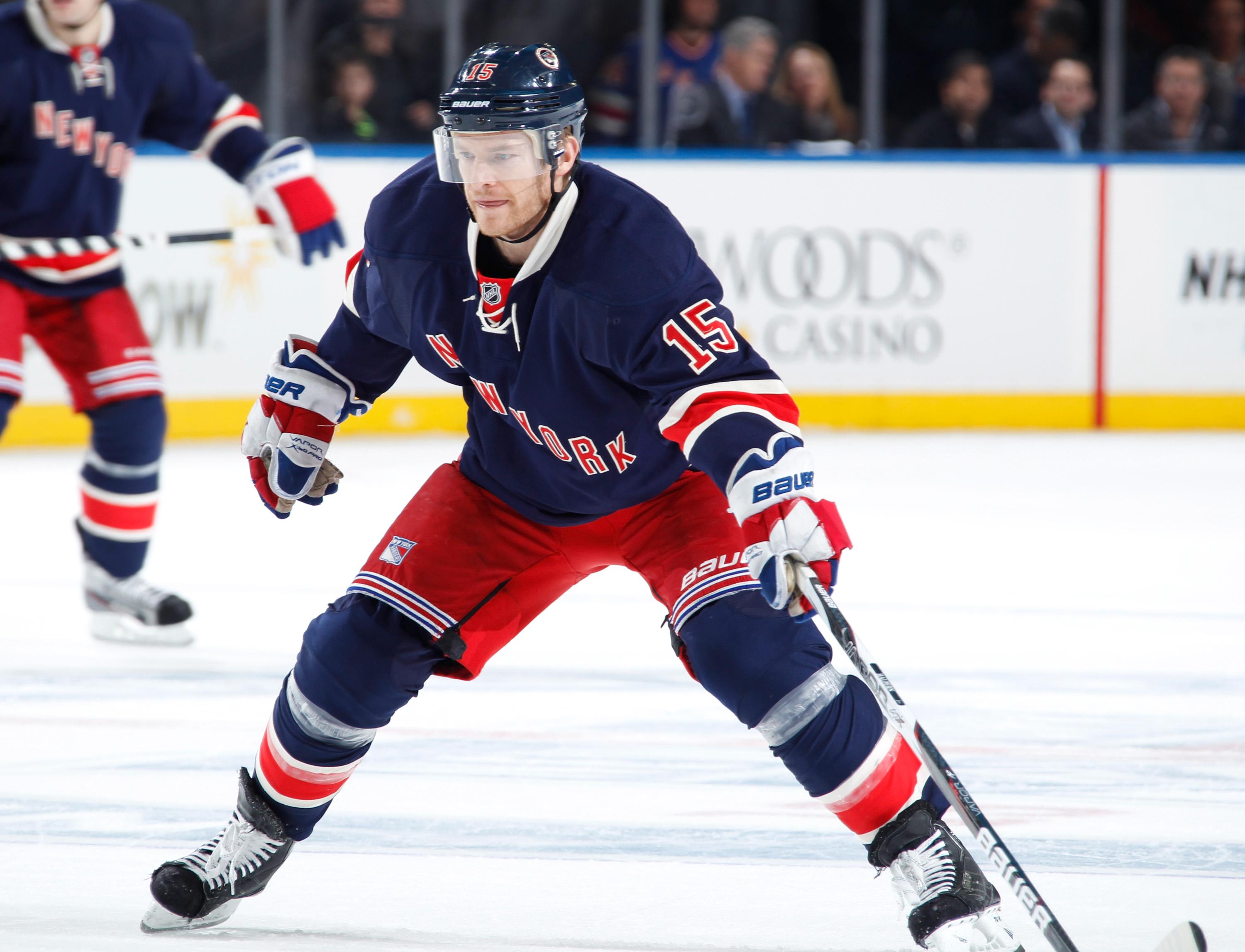
As an NHLer, Jeff Halpern was known as a cerebral center who specifically excelled on the defensive side of the puck. It's no surprise that he's succeeded as an NHL assistant.
Halpern has been Jon Cooper's right-hand man in Tampa Bay for seven seasons. That, of course, includes two Stanley Cup championships. In general, the Lightning have been the NHL's model franchise for years, finding success in virtually every capacity. Halpern, who initially joined the organization as an assistant in the Lightning's AHL affiliate, has made his mark.
The Rangers can't become the Lightning by osmosis; they already tried that with the regretful Barclay Goodrow signing. But Halpern knows how to think hockey, he's familiar with the greater New York metropolitan area, and other NHL teams have checked in on him the last few summers. At some point, he's going to get his chance as a head coach. Could the Rangers be the team to make it happen?
John Tortorella
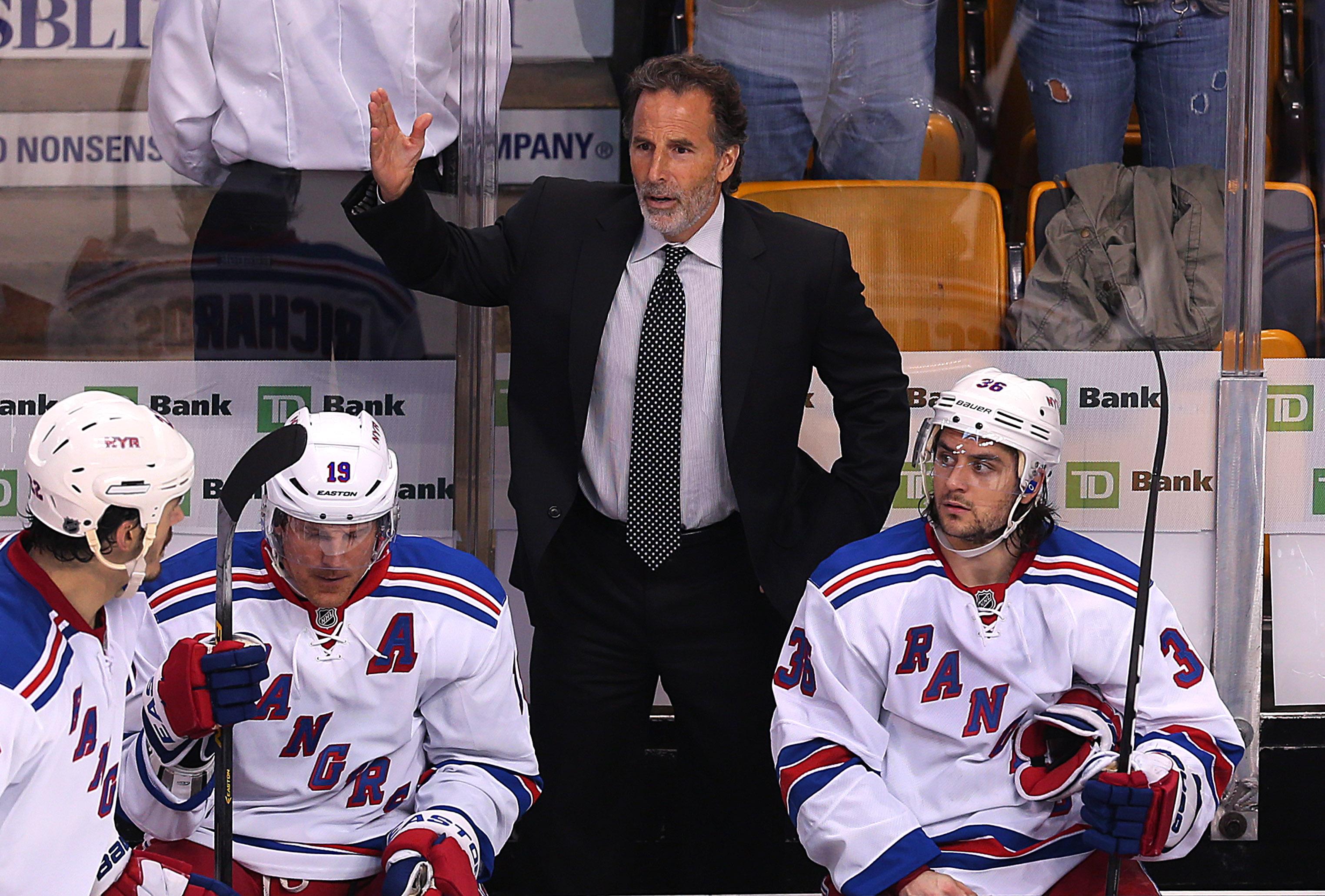
For better or worse, you just knew he would make it on the list.
The Rangers have lacked identity the last few seasons, with the previous two head coaches tepidly working with a roster that didn't fit their style. There would be no room for that under John Tortorella. He knows exactly what type of hockey he wants to play — an aggressive forecheck with strong attention to detail in the defensive zone — and players either get with the program or find themselves elsewhere quickly.
At the same time, Torts is not as tactically stubborn as one would assume. He's adapted as hockey has changed. The fact that the Philadelphia Flyers rank 11th by expected goals percentage over the last two seasons, per Evolving Hockey, is nothing short of a miracle given what the roster looks like. With even decent NHL goaltending, he has the team in the playoffs back-to-back seasons.
Of course, it's a double-edged sword. He's a great coach to get a derailed train back on the tracks, but his act wears thin very quickly. We saw that in New York the last time around, we saw that when he lasted all of one season in Vancouver, and we saw it again this year with his premature firing in Philadelphia.
The Rangers will be on their fourth head coach in six seasons. They next hire absolutely must be someone who can be expected to be around a long time. Tortorella doesn't exactly inspire confidence.













